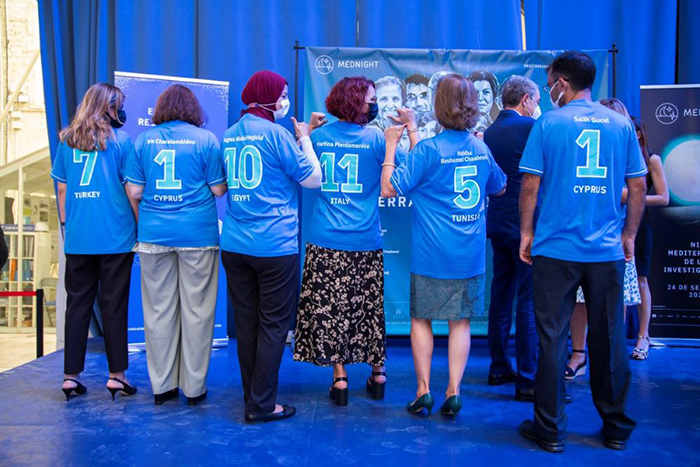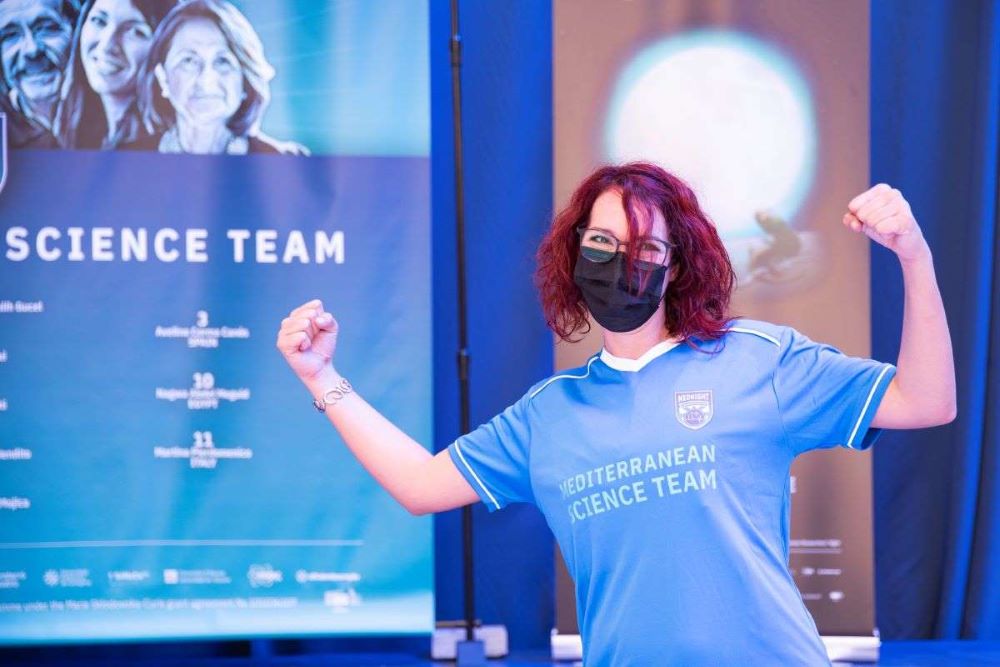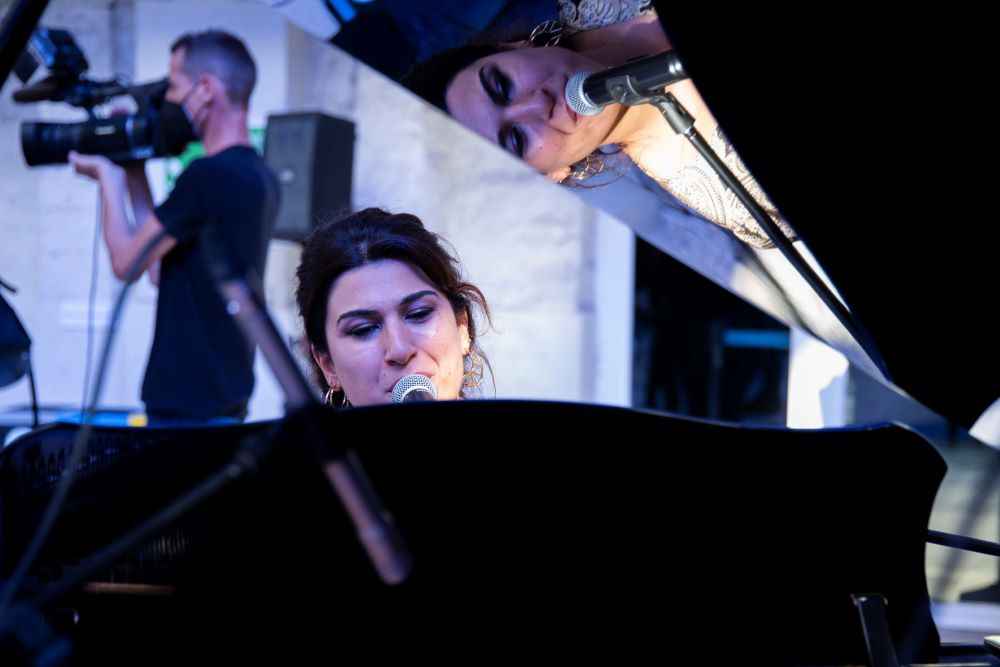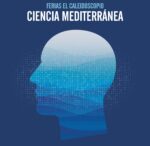Fue lo que prometimos, la fiesta de la Ciencia. Casa Mediterráneo, una antigua estación de tren, reconvertida en un espacio mediterráneamente azul, acogió la gala de presentación del primer equipo de científicas y científicos de diferentes países mediterráneos, la Selección Mediterránea de la Ciencia.
En la foto superior, Martina Pierdomenico, investigadora del IAS-CNR en Italia. Martina es miembro de los 11 de la Selección. En la foto lleva una camiseta de fútbol, la camiseta de la Selección Mediterránea. “El objetivo de generar un equipo, similar a los equipos de fútbol, es crear un símbolo potente que pueda servir para mostrar la necesidad de que la ciencia llegue a la sociedad con tanto impacto como lo hace el fútbol. He creado en cuatro ocasiones la Selección Española de la Ciencia en Quo, esta vez, el objetivo era más ambicioso, se trataba de genera un equipo internacional y mediterráneo, y hoy es una realidad”, explica Lorena Sánchez, redactora jefa de la revista QUO, organizadora de la Selección Mediterránea de la Ciencia y de la gala de presentación en Casa Mediterráneo.
Científicas y científicos de nueve países vistieron la camiseta de la Selección, con el escudo de la MEDNIGHT, la Noche Mediterránea de las Investigadoras, impulsa con los fondos de la Comisión Europea como parte de las acciones Marie Sklodowska-Curie y coordinada por la empresa alicantina El Caleidoscopio.
Aforo completo. Recibía a los invitados la música de un piano de cola y la voz de la pianista chipriota Joanna Panayi, divulgadora de ciencia en SiCo Chipre, socios de MEDNIGHT. El Mediterráneo de Serrat, de Algeciras a Estambul, sonó por primera vez en una gala por la ciencia.
La mayoría de los invitados eran científicas y científicos, como Fernando Maestre y Dolores Corella, y personalidades de la región de Valencia, aunque también se vieron rostros del mundo del arte, e incluso de las fiestas más populares en Alicante, como La Bellea del Foc.
Pero había en la ceremonia un invitado de honor, el presidente José Luis Rodríguez Zapatero, fundador de Casa Mediterráneo, firme partidario del diálogo entre civilizaciones, y conocedor del valor de la ciencia para construir un pensamiento social amplio y libre, imprescindible para tomar partido por un futuro menos malo.
En su discurso, el presidente Zapatero trajo a Jorge Luis Borges a la sala, para que el ciego que soñaba con espejos y laberintos acompañara una fiesta con un credo que también él profesaba: “La ciencia es mi única religión”, dijo el presidente Zapatero en su discurso. Y fue el único credo que acompañó durante las dos horas que duró la gala a los más de 100 invitados. En esa pequeña eternidad, para científicas y científicos con distintas lenguas y religiones, algunos de ellos inmersos en batallas sociopolíticas como los chipriotas, o la representante de Túnez, durante ese paréntesis, la ciencia sirvió como nexo de paz, y fue un lenguaje que hablaban todas y cada una de las personas que vivieron el 24 de septiembre, en Casa Mediterráneo, una gala distinta a todas las galas, en la que las científicas y los científicos se sentaron en primera fila sin que nadie discutiera que ese es su lugar.
Fotografías de María Cortes
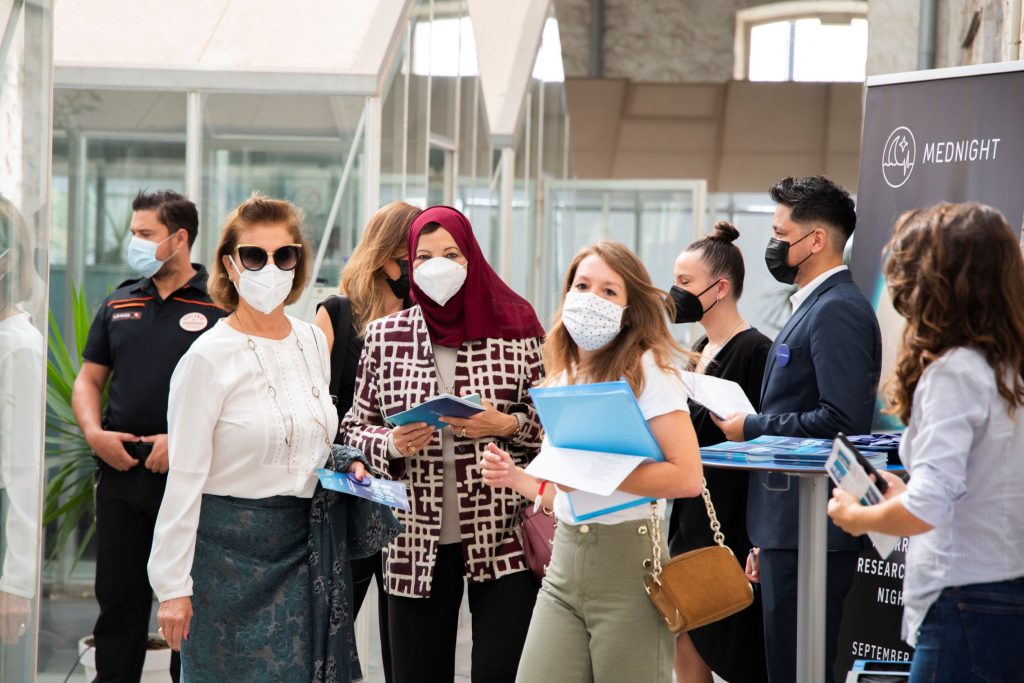
“Dedico parte de mi trabajo a empoderar a las madres porque en mi país, ante una discapacidad o trastorno infantil como el TEA, se culpa a las madres”, Nagwa Abdel Meguid
Antes del inicio de la gala, el presidente José Luis Rodríguez Zapatero se reunió en la sala Ágora de Casa Mediterráneo con las científicas y los científicos de la Selección Mediterránea de la ciencia. Preguntó a la científica turca Nurcan Tunçbağ sobre la delicada situación en Turquía en este momento. En la fotografía, habla con el científico chipriota Salih Gücel.
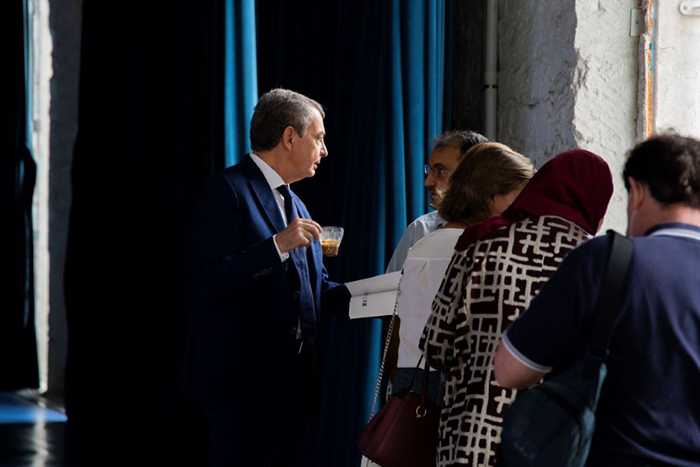
“El objetivo de la Selección Mediterránea de la Ciencia está totalmente alineado con nuestros objetivos, ya que es una de nuestras acciones apoyar plenamente la ciencia del Mediterráneo, el papel de las investigadoras y el trabajo de toda la comunidad científica en la mejora de los derechos humanos” , José Manuel Molina, secretario general de Casa Mediterráneo.
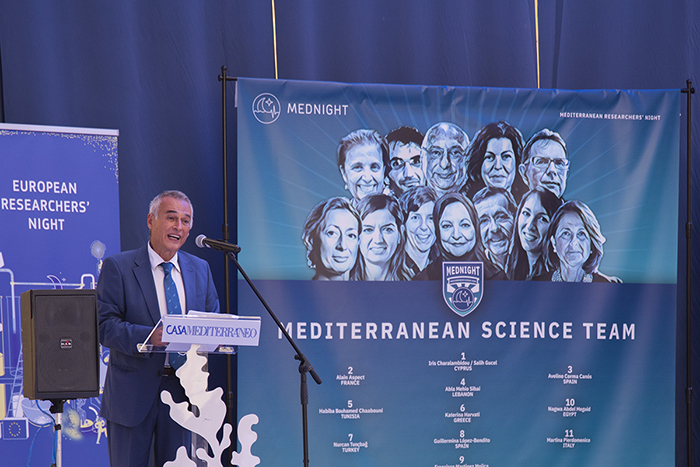
“Todos debemos tener claro la importancia de hacer llegar la ciencia a la sociedad. Quién va a cuidar el mar, si la sociedad no sabe que importa. Quién va a cuidar el futuro, si el futuro no importa”. Ricardo Domínguez, director de El Caleidoscopio y coordinador de MEDNIGHT, explicó los objetivos de la Noche de los Investigadores y la importancia de concienciar a la sociedad sobre los problemas que comparten los países mediterráneos y la ciencia que trabaja para abordarlos.
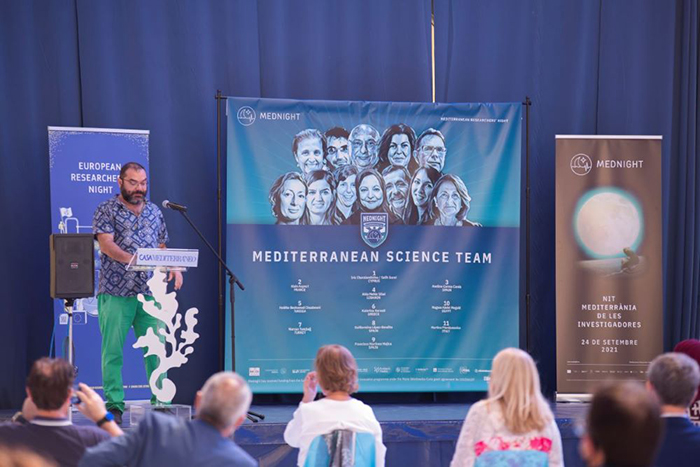
Discurso del presidente Zapatero:
“Borges dijo (y a nadie le sorprende que cite un poema de Borges): dos griegos están hablando, Sócrates, y tal vez Parménides. Es conveniente que nunca sepamos sus nombres, la historia será así más misteriosa y más auténtica. El tema del diálogo es abstracto, sobre mitos que ambos no creen, pero no discuten, y no quieren persuadir ni ser persuadidos, no piensan en ganar o perder. Están de acuerdo en una cosa, saben que la discusión es la manera no imposible de llegar a una verdad. Libres de mitos y metáforas, piensan o intentan pensar. Nunca sabremos sus nombres, pero esta conversación entre dos desconocidos en un lugar de Grecia es el hecho capital de la historia. Han olvidado la oración y la magia y, con ello, han construido el conocimiento, la ciencia, el progreso. Y esa ciencia, en Occidente, nació en el Mediterráneo. Quizás en Mileto, una vez una ciudad griega, ahora turca, una ciudad enriquecida por la diversidad y que dio origen a la filosofía.
El Mediterráneo, cuna de tantas esperanzas, cuna de aspiraciones de derechos humanos, convocatoria de tantas aventuras en la historia, debe recuperar hoy esa capacidad de unión, y la Unión Europea debe acompañar al Mediterráneo poniendo más énfasis sobre la Europa del Este, sobre la relación con Oriente y con el Sur, que es la esencia de Europa, contando con el valor de países como Turquía, país que tiene un destino de cooperación, de ampliar la visión de lo que representa Europa. Por eso aplaudo esta iniciativa que nos hace amar la ciencia, que es la única fe que profeso, que puede ser universal, abrazada en Oriente y Occidente, en cualquier cultura, abrazada por todas las civilizaciones. Nada puede acercarnos más a la idea soñada de una sola humanidad que la ciencia y el conocimiento.
A todos los premiados, mi enhorabuena, mi estímulo. Descubrir, amar la investigación, responde a dos grandes motivaciones, la primera es el asombro, la capacidad de asombro, y la segunda, el humanismo, la fuerza para contribuir al destino de los demás, de nuestra especie.
En el Mediterráneo, dediquemos nuestros esfuerzos a la protección de nuestro mar, de nuestro medio ambiente, de este planeta Tierra, que puede prescindir de la especie humana, sin embargo, los humanos no podemos prescindir de ella, de la Tierra, cuidémosla, desde Casa Mediterráneo, lugar que está llamado a ser un centro de diálogo, ese diálogo en el que Borges sitúa el principio de las cosas”.
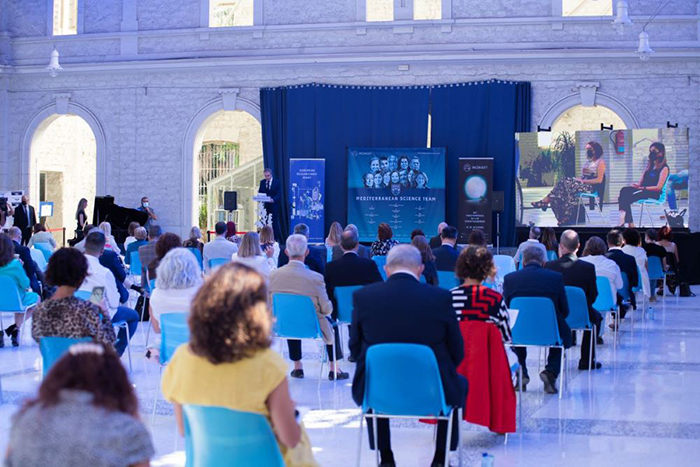
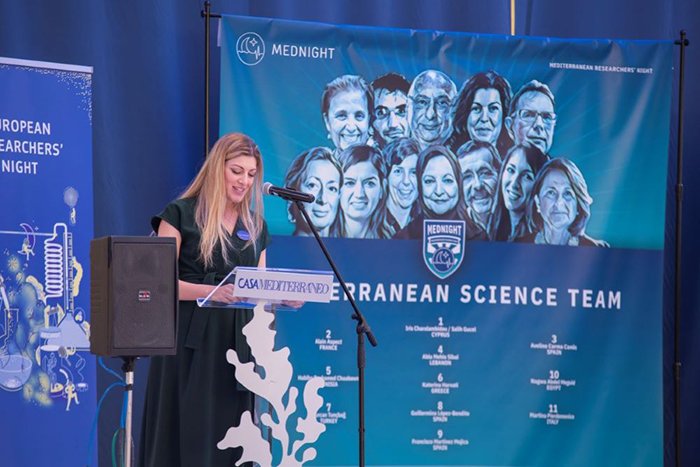
Palabras de los miembros del jurado del Equipo Mediterráneo de la Ciencia
“Es fundamental apoyar la ciencia en los países mediterráneos, porque compartimos un mismo destino”, profesor Nektarios Tavernarakis, vicepresidente del European Research Council (ERC).
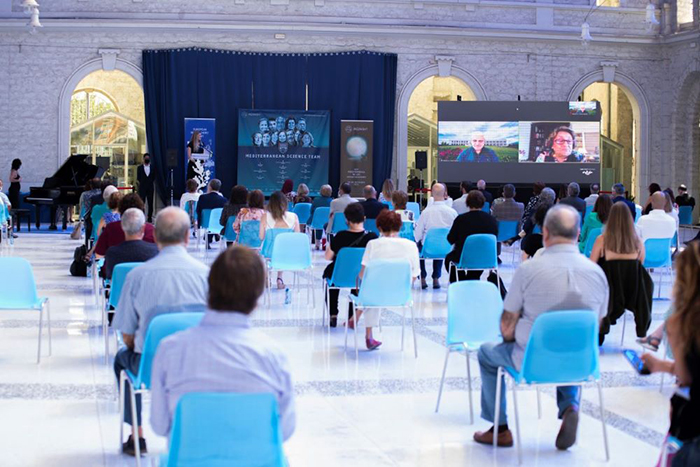
“Ha sido una magnífica sorpresa para mí observar que la mayor parte de los científicos que habían sido elegidos en una primera selección eran mujeres”, Gulsun Sağlamer, Presidente de la European Women Rectors Association (EWORA).
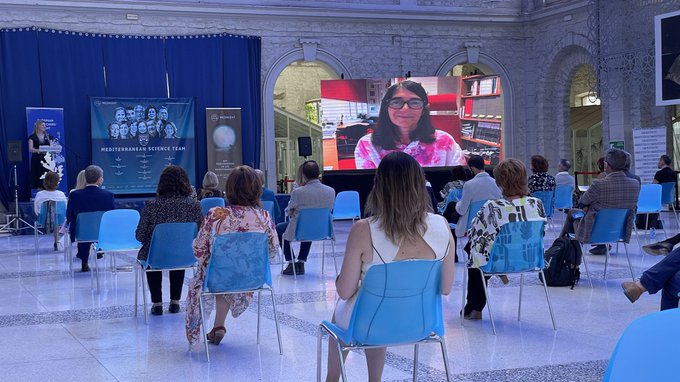
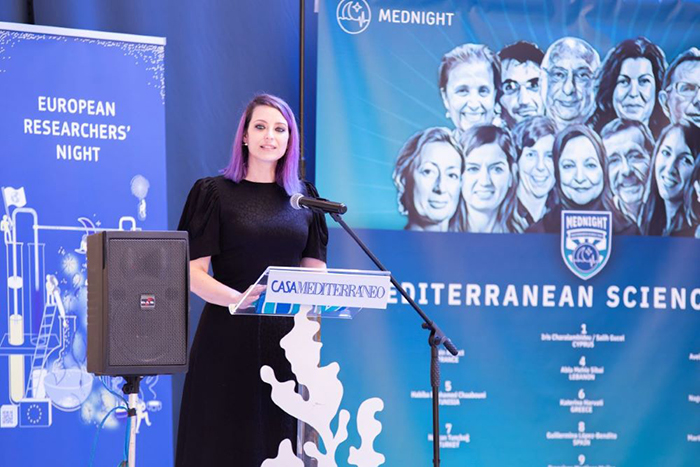
Los miembros de la Selección Mediterránea de la Ciencia recogen sus camisetas
Las camisetas son un símbolo, porque el objetivo es que la Selección Mediterránea de la Ciencia tenga tanto impacto en la sociedad como los equipos de fútbol.
Los asistentes a la gala tuvieron la oportunidad de escuchar a las científicas y científicos de la Selección explicar su investigación. Uno por uno, contaron el objetivo de su trabajo, sus logros y el camino a seguir.
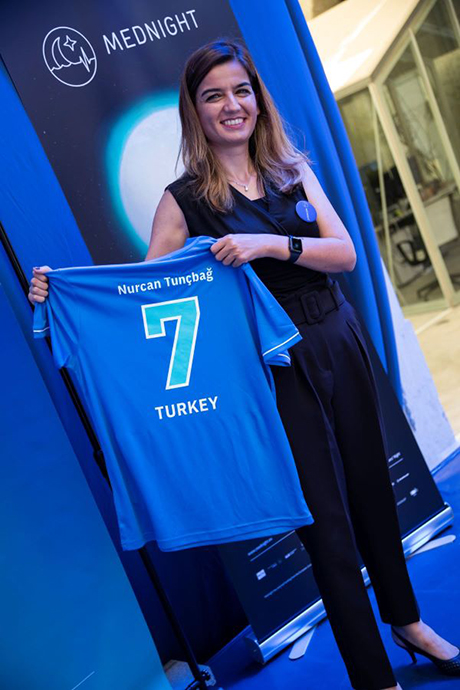
“Como ingeniera biomédica, los sistemas biológicos me interesan mucho, y los veo como una máquina, formada por partes que se comunican entre sí. Estas moléculas incluyen proteínas, genes, y las partes rotas del sistema son las que causan cáncer, enfermedades neurológicas, Alzheimer, todo . Mi enfoque es entender las enfermedades desde el punto de vista de un ingeniero, se trata de arreglar lo que está roto. Me gustaría hacer una llamado a las universidades de todo el mundo para que se actualicen en tecnología, para que inviertan en carreras STEM lo antes posible “, Nurcan Tunçbağ
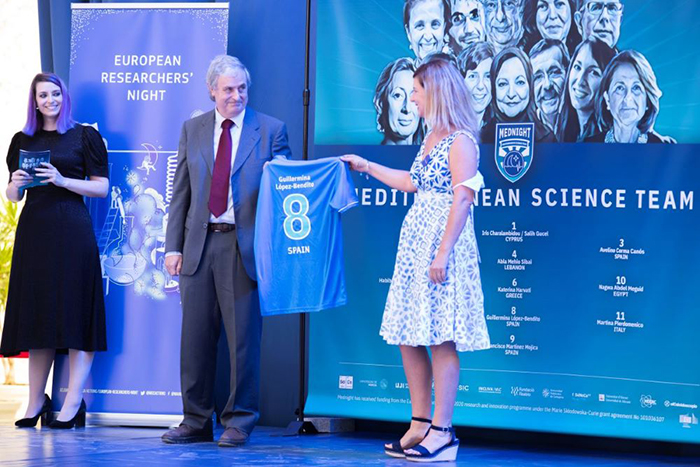
“Ahora entendemos que muchos de los trastornos de nuestra mente comienzan temprano en el desarrollo del cerebro. En mi laboratorio, nuestro objetivo es comprender cómo nuestro cerebro recibe y procesa las sensaciones, cómo ve, cómo oye, cómo percibe el mundo, y encontrar el modo de solucionar problemas que se inician en las primeras etapas de desarrollo”, Guillermina López-Bendito>
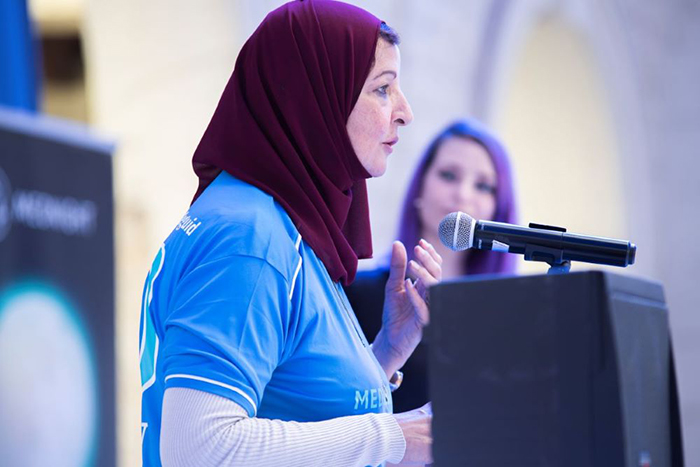
“Dedico gran parte de mi trabajo a emponderar a las mujeres, porque en mi país, ante una discapacidad o trastorno infantil como el TEA, se culpa siempre a las madres”, Nagwa Abdel Meguid.
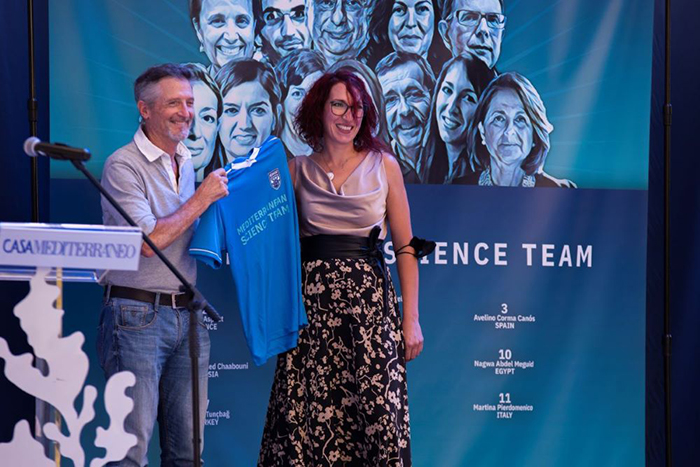
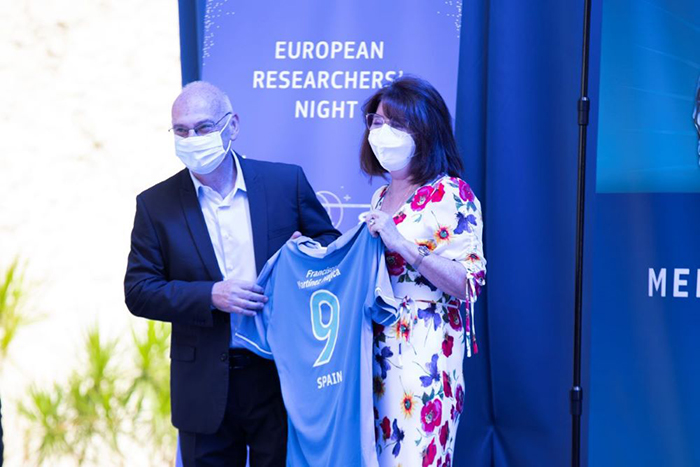
“Un día llegué a la casa de mis suegros y le dije a mi esposa: Cariño, he descubierto algo que un día aparecerá en los libros de biología”, Francis Mojica.
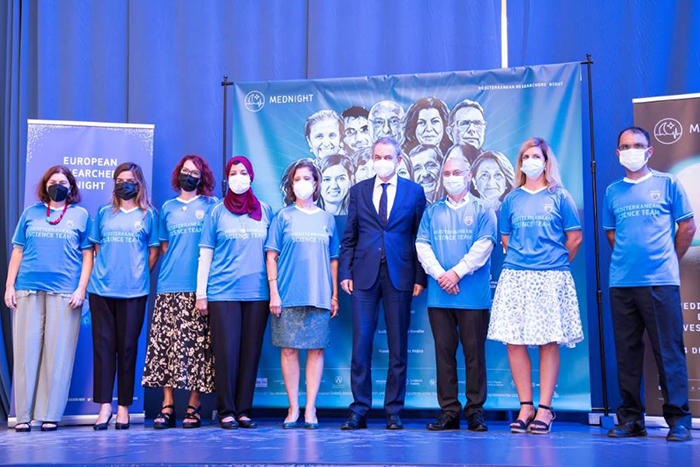
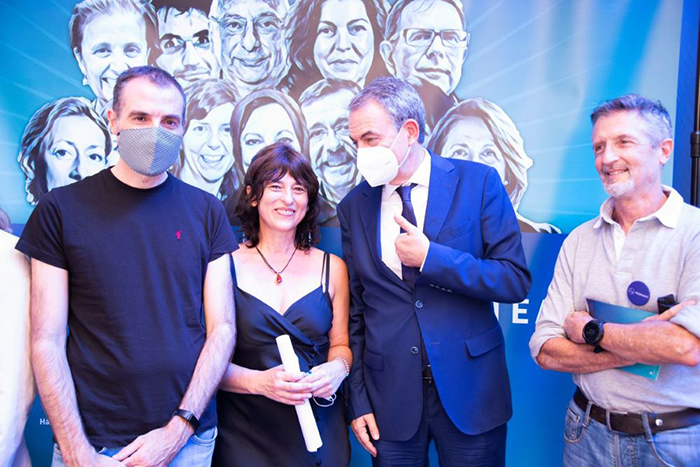
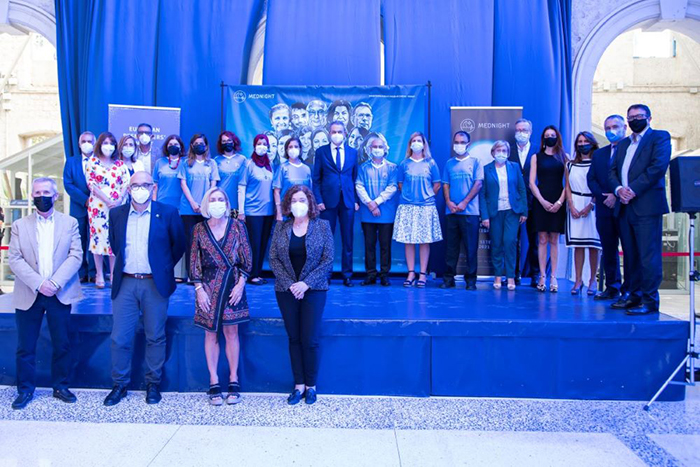
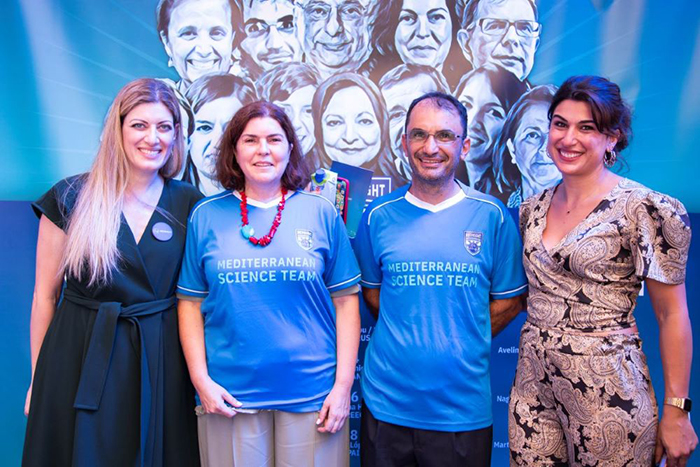
Y hubo tiempo para divertirse
